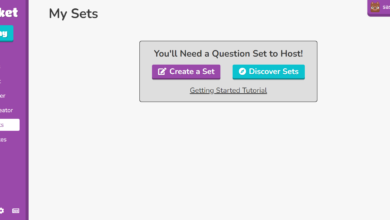8 Reading Comprehension Strategies You Can Use In Your Exams

There is no easy way of saying this – comprehension is not a walk in the park. It is time-consuming and confusing at times but there is no avoiding it. Strong vocabulary and extensive practice is the only way to perform well in reading comprehension. Students who do not practice comprehension and claim it to be easy get a reality check when they come face to face with the several-page long passage, it is the beginning of panic. So, the following article is for those people who take reading comprehension easy. Various academies provides proficient home tutor in Karachi for all subjects and classes.
Read the questions
Many teachers do not prefer this, they are right. It is not the way to do question answers, but comprehension is different than answering the questions of chapters given in the textbook. In that case, there is plenty of time (often days or even more than a week) but in the case of comprehension, the time duration is frighteningly limited. Therefore, IB English tutor always guide for reading the questions first gives an idea of what to look for while reading the passage. So, read the questions first.
Read the passage
Quick reader excels in this stage, and you cannot be a fast reader if you do not have the habit of reading (reading posts on social media doesn’t count). It is better to skim the text in the first go to have a better idea of what is the structure of the passage.
Nini’s Tutor academy offers online tutors from an extensive database of competitive teachers.
Understand the context
Now, read it slower. Try to understand the context of what the passage is conveying. This read-through should be thorough because often times the language is difficult and too much information is crammed in. Allocate at least ⅓ rd of the total time in reading for understanding.
Read the questions – again
Get back to the questions because after reading the passage twice, no one will remember what were the questions.
Mark the relevant portions to the question
By now, the reader should have retained half of the information in the passage. It will be relatively quick to remember where to look for the answer to a particular question. Marking the relevant places and numbering them is going to be helpful.
Do not add out-of-context information
While shaping your answers be careful not to add your opinion (unless the question asks for your opinion, of course), answers should be very precise and to the point.
Step back
Most of the time there will be questions that will go right over your head. A better approach will be to skip that question for the time being and move on to the next one instead of grinding hard to crack the code. We have already decided there is no point in doing all the questions imperfectly.

Do not panic
It is hard not to panic when the 3-page long passage is staring you in the face. If you panic, you won’t be able to attempt the questions properly. It is not important to do all the questions, the important thing is to do them correctly. Attempting 6 questions out of 10 questions correctly will make sure to pass the test/exam instead of rushing to do all the questions imperfectly. So be smart and do not panic.






